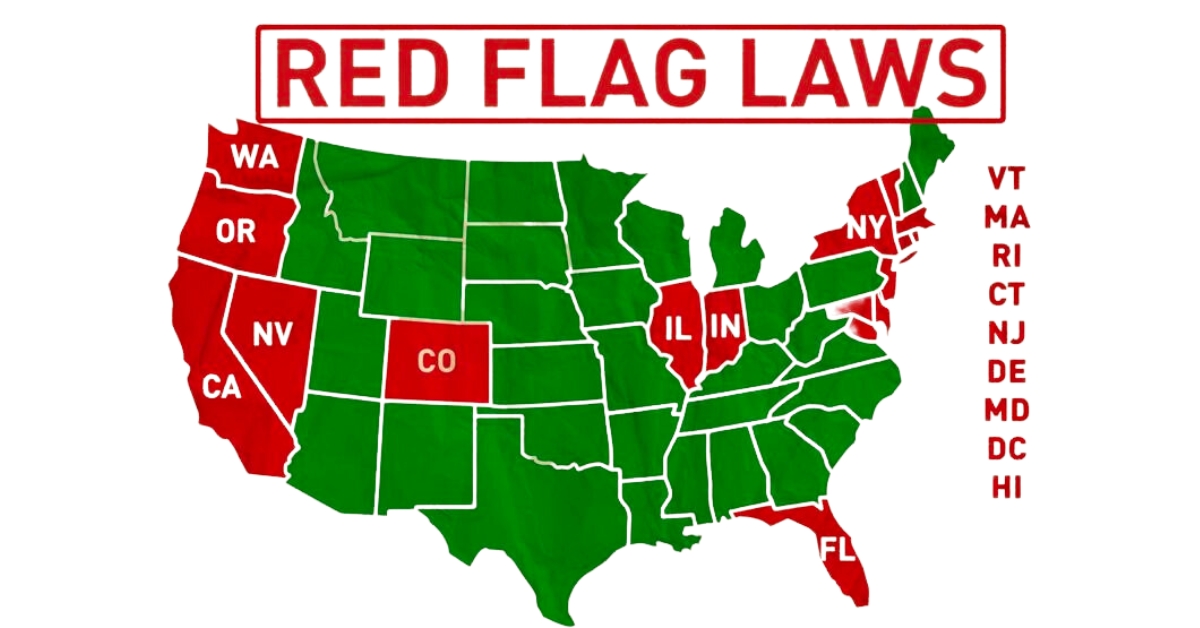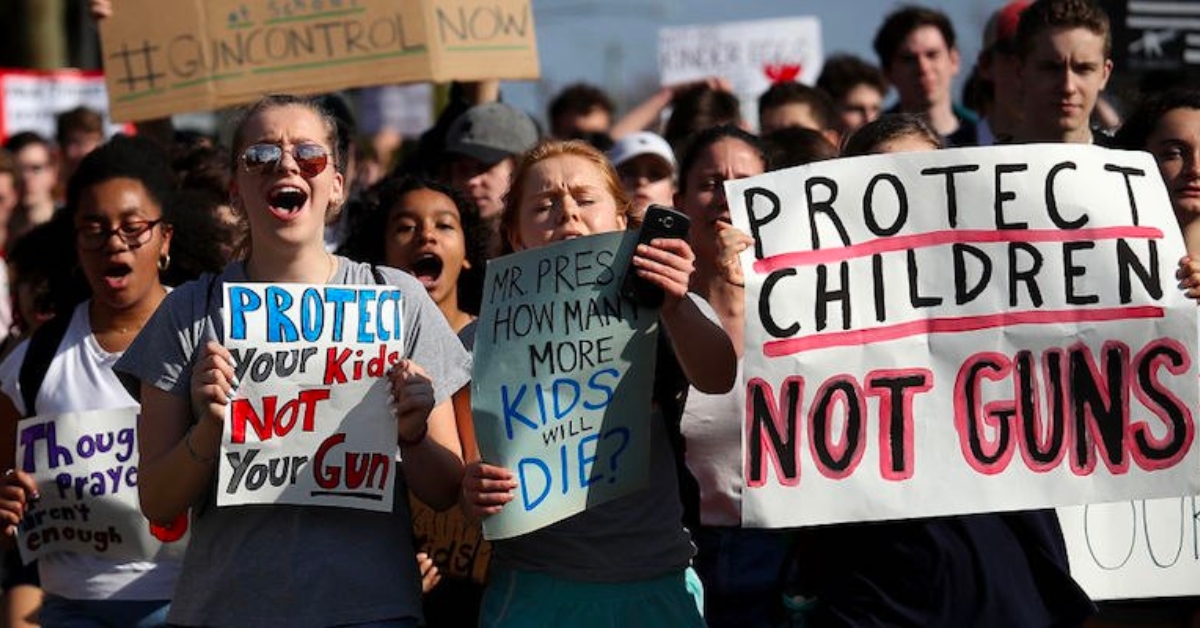Less than a month after a devastating school shooting claimed the lives of 19 children and two teachers in Uvalde, Texas, the gun debate in the United States reached a pivotal moment.
Contents
The U.S. Senate passed a significant gun control bill, marking the most substantial legislative action since the expiration of the federal assault weapons ban.
Simultaneously, the Supreme Court’s ruling in New York State Rifle & Pistol Association Inc. v. Bruen expanded gun rights, allowing people to carry guns outside their homes in jurisdictions with strict gun laws.
A Nation Divided
The Uvalde shooting, the deadliest school shooting since the 2012 Newtown massacre, intensified an already vigorous national debate on guns.
As emotions ran high, fresh legal challenges and legislative debates erupted nationwide. Supporters and opponents of gun control each made strides in their respective directions, shaping the future role of firearms in American life.
Recent Legislative Actions
From Colorado to Michigan to New Jersey, proponents of gun regulation seized the momentum. They passed laws to restrict access to firearms and mitigate the impact of the Supreme Court’s decision.
Red flag laws, designed to keep firearms away from individuals at risk of harming themselves or others, were enacted in Minnesota and Michigan, bringing the total number of states with such laws to 21.

In contrast, gun rights advocates took advantage of the Bruen decision to challenge these new restrictions in courts and state legislatures. Florida abolished permit requirements, joining many states where carrying firearms has become more accessible than ever.
The Tug of War Continues
Despite these changes, both sides of the gun debate believe they are progressing. Gun control supporters point to legislative victories and opinion polls that indicate increasing public support for some degree of gun regulation.
According to a recent poll by NPR, PBS, and Marist College, 60 percent of Americans, including 4 in 10 gun owners, prioritize controlling gun violence over protecting gun rights.
However, opponents of gun regulation remain resilient and are determined to challenge any perceived infringement on their Second Amendment rights.
Dudley Brown, the president of the National Association for Gun Rights, views the Bruen ruling as a bulwark against regulations, giving his organization grounds to challenge gun restrictions in numerous lawsuits.
Glimmers of Progress and Political Calculus
Despite political divisions, gun control advocates believe there are opportunities for progress. Efforts to increase gun regulation can coexist with measures aimed at keeping firearms out of the hands of individuals with harmful intentions.
Some advocates stress the importance of using targeted approaches to identify and prevent potential risks from escalating into tragedies.
Mass shootings have brought fiery protests even to states with historically strong gun rights advocacy. Events in Nashville, Tennessee, where thousands demanded stricter gun control measures after a tragic shooting at the Covenant School, exemplify how the debate is shifting.
Uphill Battle for Stricter Gun Laws
During the 140-day legislative session, families of Uvalde victims embarked on a 2 1/2-hour journey to the Texas Capitol on multiple occasions, holding rallies and meeting with lawmakers to push for stricter gun regulations.
However, the issue remained heavily divided along party lines, with Republicans staunchly opposing restrictive measures.
Despite bipartisan support in the House committee, a bill to raise the minimum age for purchasing certain semi-automatic rifles from 18 to 21, a key priority for the Uvalde families, was blocked from further debate on the House floor.
GOP’s Stance on Gun Control
Polling data indicates that most Texans support gun control policies, such as raising the minimum purchasing age, implementing safe gun storage requirements, enacting red flag laws, and conducting background checks on all firearm purchases.
However, these measures have faced resistance from Republicans in the Texas Legislature. In recent years, the Legislature has even rolled back existing restrictions, permitting open carry of handguns without a permit and implementing other pro-gun measures.
Signs of Progress Amid Ongoing Partisan Divide
While gun control activists faced significant challenges, they identified small victories during the legislative session.
Lawmakers approved a bipartisan measure to send juvenile mental health records to the Texas Department of Public Safety, a step they believe will enhance federal background checks on gun purchases. However, background checks are still not mandatory for certain private sales in Texas.
A bill targeting straw purchases, where individuals buy guns for those ineligible to possess them, could become law if it receives Senate approval.
Activists Determined to Keep Fighting
Texas Gun Sense executive director Nicole Golden expressed cautious optimism, describing the committee’s approval of the raise-the-age bill as a “milestone achievement” for gun control legislation.
Parents, families, and advocates remain committed to their cause despite setbacks. They believe that the fight for stricter gun laws must continue, even in the face of resistance from some lawmakers.

The Texas Young Republican Federation countered the push for stricter gun laws, arguing that individuals deemed old enough to vote or serve in the military should also enjoy the full protections guaranteed by the Constitution, including the right to bear arms.
Global Perspectives on Gun Control
Gun control is a complex issue that extends beyond national borders, with each country holding the sovereign authority to regulate firearms within its territory. Across the world, the approach to gun control varies significantly, reflecting diverse cultural, historical, and legal considerations.
Japan
In many industrialized countries, strict gun control regulations are in place to address public safety concerns. Japan, for instance, enforces stringent restrictions on the possession and use of firearms, allowing them only in limited circumstances such as hunting, athletic events, and research activities.
Canada
Similarly, Canada permits the possession and use of firearms for competitive shooting and target practice. However, it strictly prohibits the possession of handguns unless individuals can demonstrate a genuine need for self-defense.
The United Kingdom
In the United Kingdom, handguns have been completely banned, and the possession of firearms is limited to specific activities such as hunting, target shooting, pest control, and slaughtering. This approach reflects the U.K.’s commitment to minimizing firearm-related incidents and promoting public safety.
Germany
Conversely, Germany adopts a more nuanced approach to gun ownership. While certain firearms are allowed, individuals must meet stringent requirements to obtain a firearms ownership license.
These criteria typically include being 18 or older, possessing expert knowledge in firearm handling, and demonstrating a legitimate need to own such firearms.
Rest of the World
Each country’s gun control policies are shaped by its unique historical experiences, sociopolitical factors, and public attitudes toward firearms. These policies aim to balance preserving individual rights, such as sports shooting and hunting traditions, and safeguarding public safety.
While international comparisons offer valuable insights into various approaches to gun control, implementing changes in any country’s gun laws is a complex and often contentious process. Each nation must grapple with the delicate task of finding solutions that best suit its specific context and values while addressing the multifaceted challenges of firearm regulation.
Gun control remains a subject of global significance, and each country’s approach to firearm regulation reflects a careful balance between individual rights and public safety.
As societies continue to evolve, the international dialogue surrounding gun control remains a critical platform for sharing ideas and experiences, ultimately contributing to efforts to minimize gun-related violence and promote a safer world.
Conclusion
The Uvalde shooting’s aftermath revealed a deeply polarized nation grappling with the complex and emotionally charged issue of gun policy. As the gun debate continues, finding common ground remains a challenge.
The tragedies and activism in the wake of Uvalde have sparked important discussions. However, the gun debate will remain a central and contentious issue in the United States for the foreseeable future.
